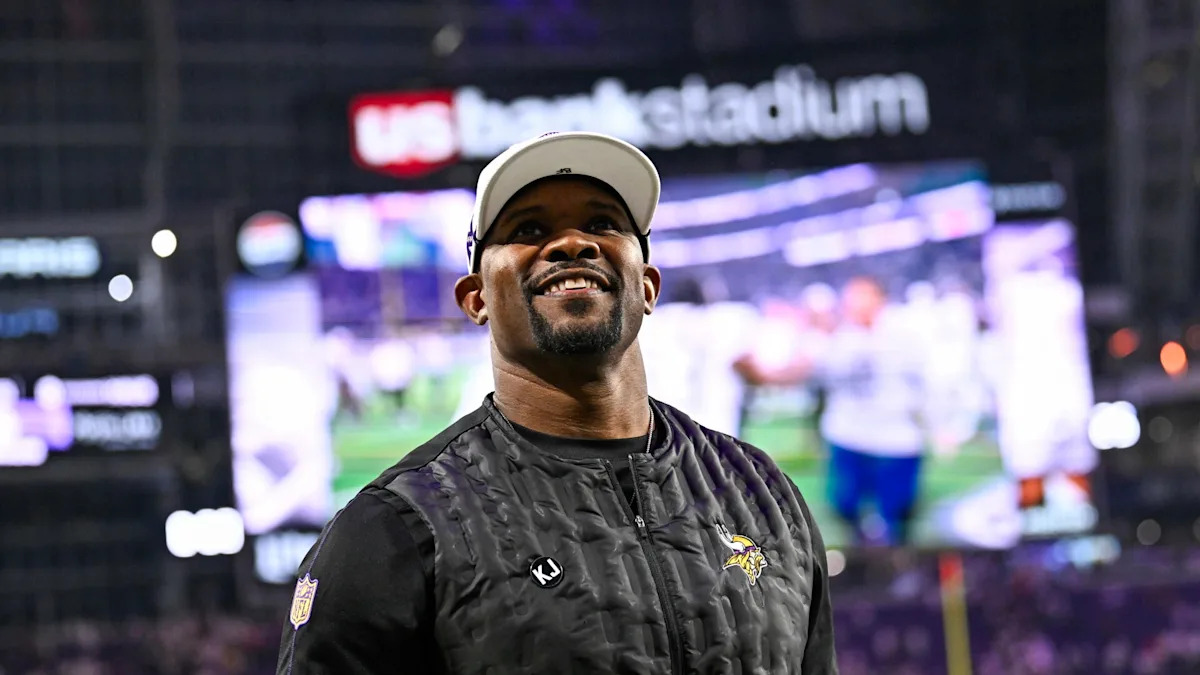In a landmark decision, Brian Flores has secured a significant win against the NFL in federal appeals court. This victory challenges the league’s arbitration process and raises questions about fairness and transparency. The court’s ruling allows Flores’s claims against the Giants, Broncos, Texans, and the NFL to proceed, potentially reshaping how disputes are resolved within the league.
This legal battle highlights the ongoing concerns about discrimination and the power dynamics within the NFL. Flores’s case, along with Jon Gruden’s, underscores the need for independent and impartial resolution mechanisms. The implications of this ruling extend beyond football, setting a precedent for workers seeking accountability in various industries.
This article dives into the details of Flores’s victory, examining the court’s decision, the reactions from both sides, and the broader implications for the NFL and its arbitration practices. We will also explore the potential future steps and the impact on the league’s approach to dispute resolution.
Brian Flores Secures Win Against NFL in Federal Appeals Court
Brian Flores has achieved a major legal victory as the U.S. Court of Appeals for the Second Circuit ruled in his favor. This decision allows his discrimination claims against the NFL, the Giants, Broncos, and Texans to proceed in court, bypassing the league’s preferred arbitration process.
The three-judge panel’s 29-page ruling emphasizes the importance of fair and unbiased dispute resolution. This outcome marks a significant challenge to the NFL’s long-standing practice of resolving disputes internally through arbitration, which has been criticized for lacking transparency and impartiality.
According to Flores’s lawyers, this decision sends a clear message that the NFL’s reliance on a biased arbitration process must end. They framed it as a victory not only for NFL employees but for workers across the country who believe in transparency, accountability, and justice. The NFL, however, has expressed disagreement with the ruling and intends to seek further review.
Challenging the NFL’s Arbitration Process
The NFL’s arbitration process has long been a point of contention, with critics arguing that it favors the league and lacks the independence needed for fair dispute resolution. The Flores case has brought this issue to the forefront, challenging the league’s authority to dictate how legal claims are handled.
The Nevada Supreme Court’s ruling against the effort to force Jon Gruden’s claims into arbitration further underscores the growing skepticism towards the NFL’s internal processes. These legal challenges suggest a shift towards greater scrutiny and a demand for more impartial resolution mechanisms.
The controversy surrounding the arbitration process raises questions about the Commissioner’s role in resolving disputes involving the league. Critics argue that the Commissioner’s involvement creates an inherent conflict of interest, undermining the fairness and objectivity of the process.
Statements and Reactions from Both Sides
Following the court’s decision, both Brian Flores’s legal team and the NFL issued statements, reflecting their differing perspectives on the outcome. Flores’s lawyers hailed the ruling as a victory for workers’ rights and a step towards greater accountability in the NFL.
The NFL, in its statement, expressed disagreement with the panel’s ruling and indicated its intention to seek further review. This response suggests that the league is prepared to continue defending its arbitration process and challenging legal claims through established channels.
The contrasting reactions highlight the high stakes involved in this legal battle and the potential implications for the future of dispute resolution within the NFL. As the case progresses, further statements and reactions are expected from stakeholders across the league.
Implications and Future Steps for the NFL
The Flores case could lead to significant changes in the NFL’s approach to dispute resolution. The court’s ruling may prompt the league to reconsider its arbitration process and explore alternative mechanisms that ensure greater fairness and transparency.
The outcome of this case could also influence how other legal claims against the NFL are handled in the future. A precedent has been set that the league’s authority to enforce arbitration agreements is not absolute, and that certain claims should be subject to judicial review.
As the NFL seeks further review, the legal battle is likely to continue, with potential appeals and further court proceedings. The ultimate resolution of the Flores case will have far-reaching implications for the league and its relationship with players, coaches, and employees.
Conclusion: A Turning Point for Accountability in the NFL?
Brian Flores’s victory in federal appeals court marks a significant moment in the ongoing debate over fairness and accountability in the NFL. This ruling challenges the league’s established practices and raises important questions about the resolution of disputes.
The outcome of this case could have a lasting impact on the NFL, potentially leading to reforms in its arbitration process and a greater emphasis on transparency and impartiality. As the legal battle continues, the focus remains on ensuring that all parties are treated fairly and that justice is served.
The Flores case serves as a reminder of the importance of holding powerful institutions accountable and advocating for the rights of workers. Whether this marks a true turning point for the NFL remains to be seen, but it is undoubtedly a step in the right direction.

Leave a Reply